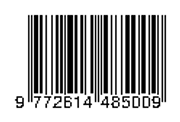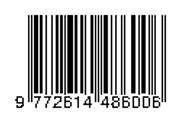
- Focus and Scope
- Section Policies
- Peer Review Process
- Publication Frequency
- Open Access Policy
- Screening for Plagiarism
- Review Guidelines
- Publication Ethics
- 5 Citedness of Journal Articles in Scopus
- Abstracting/Indexing
Focus and Scope
Electrical Engineering
- Electrical Engineering Materials,
- Electric Power Generation,
- Transmission and Distribution,
- Power Electronics,
- Power Quality,
- Power Economic, FACTS,
- Renewable Energy,
- Electric Traction,
- Electromagnetic Compatibility,
- High Voltage Insulation Technologies,
- High Voltage Apparatuses,
- Lightning Detection and Protection,
- Power System Analysis, SCADA,
- Electrical Measurements;
Mechatronic
- Control System,
- Robotic System,
- Manufacturing Apparatus,
- CNC Machine,
- Sensors,
- Actuators,
- Kinematics,
- Mechanical Dynamics
Computer Science
- Computer Architecture,
- Computer Network Security,
- Computer Network,
- Computer Security,
- Computer Security,
- Computer Vision,
- Dependable Computing,
- Distributed Computing System,
- High Performance Computing,
- Human—Computer Interaction,
- Parallel and Distributed Computer,
Section Policies
Articles
Peer Review Process
All manuscripts submitted to this journal must follow focus and scope, and author guidelines of this journal. The submitted manuscripts must address scientific merit or novelty appropriate to the focus and scope. All manuscripts must be free from plagiarism contents. All authors are suggested to use plagiarism detection software to do the similarity checking. Editors check the plagiarism detection of articles in this journal by using a Turnitin software.
The research article submitted to this journal will be double blind review at least 2 (two) or more expert reviewers. The reviewers give scientific valuable comments improving the contents of the manuscript.
Final decision of articles acceptance will be made by Editors according to reviewers comments. Publication of accepted articles including the sequence of published articles will be made by Editor in Chief by considering sequence of accepted date and geographical distribution of authors as well as thematic issue.
Publication Frequency
JEEMECS published twice a year on February and August
Open Access Policy
This journal provides immediate open access to its content on the principle that making research freely available to the public supports a greater global exchange of knowledge.
This journal is open access journal which means that all content is freely available without charge to users or / institution. Users are allowed to read, download, copy, distribute, print, search, or link to full text articles in this journal without asking prior permission from the publisher or author. This is in accordance with Budapest Open Access Initiative
Screening for Plagiarism
In the publication, the JEEMECS strongly opposes plagiarism on its own merits. The JEEMECS is committed to blocking plagiarism, including self-plagiarism.
Authors must ensure that they have written the original work completely, and if the author has used the work and/or the words of others that have been quoted or quoted appropriately. Papers found with such problems are automatically rejected and the author strongly advised. Also, an important part of the work has not been published. The author also respects the writing in the JEEMECS of publication, duplicate, or excessive fraud.
Before the author submits a script to the JEEMECS at least to first check the use of plagiarism. When submitting published articles for authenticity checks, the JEEMECS recommends the use of Turnitin, Scanner from http://turnitin.com/. Before using Plagiarism Turnitin for the first time, we strongly recommend that authors read the instructions for using this plagiarism detector. The detector plagiarism system for the JEEMECS uses and is affiliated with Turnitin.
* Please note that the JEEMECS affiliated with Turnitin. *
The article has not been published in other media and does not contain plagiarism. Preferably the author should use reference management software, eg for Mendeley. The bibliography and reference system for the JEEMECS uses Mendeley.
Review Guidelines
General
- Give mark on the wrong part or part that need to be changed
- Give mark on the right side of the wrong line or line that need to be changed
Detail
- Title: Effectiveness, Specification, and clarity
- Abstract: Complete and describe the essence of article
- Keywords: Describing the essential concept of article
- Introduction: Up-to-date, originality, relevance of the Topic, compatibility of the important reason of the research object
- Research Method: Has to emphasize on procedure and data analysis for empiric study
- Result: Analysis accurateness
- Findings: Up-to-date finding, relevance to the interrelated researchers, and the scientific contribution effect of finding /idea to the development of science
- Conclusion: Logical, valid, brief, and clear
- Suggestion: For practical action, development of new theory, and next/advanced research
- Picture/Table: Center located, Not cutted, Good quality to viewed, Picture/table title, Referred with capital letter
- Bibliography: The degree of up-to-date and thereference to primary book sources. Rules: minimum 80% of the journals or the interrelated scientific researchers, above 2007 (year); thenumber of book sources are minimum10; minimum 80% in the text/material of art.
Full Review Process of Manuscript
- Writing: Is the manuscript easy to follow, that is, has a logical progression and evident organization?
- Is the manuscript concise and understandable? Any parts that should be reduced,
- Eliminated/expanded/added?
- Note if there are major problems with mechanics: grammar, punctuation, spelling. (If there are just a few places that aren’t worded well or correctly, make a note to tell the author the specific places. If there are consistent problems throughout, only select an example or two if need be- don’t try and edit the whole thing).
- Abbreviations: Used judiciously and are composed such that reader won’t have trouble remembering what an abbreviation represents.
- Follows style, format and other rules of the journal.
- Citations are provided when providing evidence-based information from outside sources.
Categories Decision
- Publish : No Need Revision
- Minor : Revision can be done by Editor-In-Chief or those who help
- Major : Revision can only be done by author
- Rejected : Unproperly scientific or too many
Publication Ethics
Our ethic statements are based on COPE’s Best Practice Guidelines for Journal Editors.
Publication decisions
The editor is responsible for deciding which of the articles submitted to the journal should be published.
The editor may be guided by the policies of the journal's editorial board and constrained by such legal requirements as shall then be in force regarding libel, copyright infringement and plagiarism. The editor may confer with other editors or reviewers in making this decision.
Fair play
An editor at any time evaluate manuscripts for their intellectual content without regard to race, gender, sexual orientation, religious belief, ethnic origin, citizenship, or political philosophy of the authors.
Confidentiality
The editor and any editorial staff must not disclose any information about a submitted manuscript to anyone other than the corresponding author, reviewers, potential reviewers, other editorial advisers, and the publisher, as appropriate.
Disclosure and conflicts of interest
Unpublished materials disclosed in a submitted manuscript must not be used in an editor's own research without the express written consent of the author.
Duties of Reviewers
Contribution to Editorial Decisions
Peer review assists the editor in making editorial decisions and through the editorial communications with the author may also assist the author in improving the paper.
Promptness
Any selected referee who feels unqualified to review the research reported in a manuscript or knows that its prompt review will be impossible should notify the editor and excuse himself from the review process.
Confidentiality
Any manuscripts received for review must be treated as confidential documents. They must not be shown to or discussed with others except as authorized by the editor.
Standards of Objectivity
Reviews should be conducted objectively. Personal criticism of the author is inappropriate. Referees should express their views clearly with supporting arguments.
Acknowledgement of Sources
Reviewers should identify relevant published work that has not been cited by the authors. Any statement that an observation, derivation, or argument had been previously reported should be accompanied by the relevant citation. A reviewer should also call to the editor's attention any substantial similarity or overlap between the manuscript under consideration and any other published paper of which they have personal knowledge.
Disclosure and Conflict of Interest
Privileged information or ideas obtained through peer review must be kept confidential and not used for personal advantage. Reviewers should not consider manuscripts in which they have conflicts of interest resulting from competitive, collaborative, or other relationships or connections with any of the authors, companies, or institutions connected to the papers.
Duties of Authors
Reporting standards
Authors of reports of original research should present an accurate account of the work performed as well as an objective discussion of its significance. Underlying data should be represented accurately in the paper. A paper should contain sufficient detail and references to permit others to replicate the work. Fraudulent or knowingly inaccurate statements constitute unethical behavior and are unacceptable.
Originality and Plagiarism
The authors should ensure that they have written entirely original works, and if the authors have used the work and/or words of others that this has been appropriately cited or quoted.
Multiple, Redundant or Concurrent Publication
An author should not in general publish manuscripts describing essentially the same research in more than one journal or primary publication. Submitting the same manuscript to more than one journal concurrently constitutes unethical publishing behaviour and is unacceptable.
Acknowledgement of Sources
Proper acknowledgment of the work of others must always be given. Authors should cite publications that have been influential in determining the nature of the reported work.
Authorship of the Paper
Authorship should be limited to those who have made a significant contribution to the conception, design, execution, or interpretation of the reported study. All those who have made significant contributions should be listed as co-authors. Where there are others who have participated in certain substantive aspects of the research project, they should be acknowledged or listed as contributors.
The corresponding author should ensure that all appropriate co-authors and no inappropriate co-authors are included on the paper, and that all co-authors have seen and approved the final version of the paper and have agreed to its submission for publication.
Disclosure and Conflicts of Interest
All authors should disclose in their manuscript any financial or other substantive conflict of interest that might be construed to influence the results or interpretation of their manuscript. All sources of financial support for the project should be disclosed.
Fundamental errors in published works
When an author discovers a significant error or inaccuracy in his/her own published work, it is the author’s obligation to promptly notify the journal editor or publisher and cooperate with the editor to retract or correct the paper.
5 Citedness of Journal Articles in Scopus
Irfan M ; Dwi Arman P ; Aries Boedi S ; Putri Surya A
(2019). Circular Polarization 5.5 GHz Double Square Margin Antenna in the Metal Framed Smartphone for SIL Wireless Sensor. International Seminar on Intelligent Technology and Its Applications (ISITIA), Date of Conference: 28-29 Aug. 2019. https://ieeexplore.ieee.org/abstract/document/8937257
Adi, P.D.P., Kitagawa, A., (2019). Quality of Service and power consumption optimization on the IEEE 802.15.4 pulse sensor node based on Internet of Things. International Journal of Advanced Computer Science and Applications. Volume 10, Issue 5, Pages 144-154. https://www.scopus.com/record/display.uri?eid=2-s2.0-85066760495&origin=inward&txGid=b6527a50965849977d2df9f5ff009b8f
Adi, P.D.P., Kitagawa, A., (2019). ZigBee Radio Frequency (RF) performance on Raspberry Pi 3 for Internet of Things (IoT) based blood pressure sensors monitoring. International Journal of Advanced Computer Science and Applications. Volume 10, Issue 5, Pages 18-27. https://www.scopus.com/record/display.uri?eid=2-s2.0-85066732467&origin=inward&txGid=f0dceb68630e6cfddbfe7abc267180d7
Adi, P.D.P., Kitagawa, A., (2019). A Review of the Blockly Programming on M5Stack Board and MQTT Based for Programming Education. IEEE 11th International Conference on Engineering Education (ICEED). Date of Conference: 6-7 Nov. 2019 https://ieeexplore.ieee.org/document/8994922
BR Prakash, S Megha, SR Niharika, MG Megha. Super Smart Home Automation using Internet of Things. 2019 4th International Conference on Electrical, Electronics, Communication, Computer Technologies and Optimization Techniques (ICEECCOT). Date of Conference 13-14 Dec. 2019. https://ieeexplore.ieee.org/abstract/document/9114829
Abstracting/Indexing
2. Gerbang Rujukan Digital (GARUDA)
3. dOI Crossref
4. Dimension
5. Index Copernicus International
6. PKP Index










